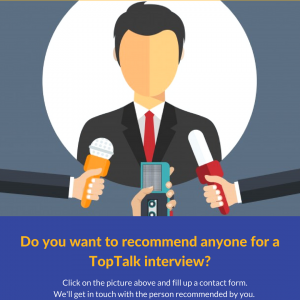 Paul Hebert is the Senior Director of Solutions Architecture for Creative Group, Inc. designing engagement and loyalty programs for business and employees.
Paul Hebert is the Senior Director of Solutions Architecture for Creative Group, Inc. designing engagement and loyalty programs for business and employees.
Paul is a writer, speaker, and consultant and is widely considered an expert on motivation and incentives focused on influencing behaviors that drive business results through employees, channel partners, and consumers.
Other highlights include:
- Being interviewed by the BBC on executive motivation and pay
- Three interviews with the USA TODAY as an expert in incentives and channel travel programs
- 11-year contributing writer on the Fistful of Talent blog
- Writer and founding member of the editorial advisory board at the HRExaminer website
- Contributing author of “Enterprise Engagement: The Textbook: A Roadmap to Achieving Organizational Results Through People”
- Contributing author of 3 books on social media “The Age of Conversation #1, #2, & #3”
Follow Paul on Twitter: @incentintel
What does employee engagement mean to you?
On a personal level employee engagement means I WANT to contribute to my company’s and my own success.
From a company point of view, I think employee engagement SHOULD mean that those that have employees reporting to them (all the way to the CEO) ensure their employees know how they contribute to the company’s success and help them align that effort with what the employees need and want for their personal success.
How to measure employee engagement?
I don’t’ know if there is a simple measurement of engagement.
There is a multitude of companies who have their own system and each of them measures a component of what it means to be engaged. But at the end of the day engagement is so variable I don’t know if it something you can measure.
As an example, an employee’s engagement may wax and wane based on mood, their manager’s mood, the market and even the news about the company. Think of being an Uber employee when all the bad press was swirling around the company. I may have been fully engaged before but then something happens at the very top of the hierarchy at the company and shows up as negative news. Nothing really changed in that employee’s relationship with their manager, or their work, yet the market and what someone else in the company did, affected their engagement.
I’d rather look at engagement as an operating system, the company OS so to speak, that focuses on the company and the employee working together to optimize their relationship. It’s not something you measure as much as something a company just “has.”
What are the common causes of employee disengagement?
I truly believe there is only one real “cause” of disengagement and that is a manager/supervisor who sees the employee as resources to be used to maximize company value. That is what you do with the machines in the factory. Maximize production.
I believe the lack of management skills is the main cause of employee disengagement because bad managers see employees as means to an end, not an individual. Employees are human beings and the work they do can’t necessarily be “maximized.” Treating them like machines to be maximized distances them from the company creating disengagement. Too often we look engagement through the lens of ROI to get the attention of the CEO. I think this increases disengagement because it puts a monetary price tag on it. What if I could prove a better ROI equation by treating employees poorly? Would (should) the company take that approach? Why not? If you use ROI to enable engagement activities you have to live by the result that might show engagement initiatives won’t help. You can’t use ROI as a tool only when it fits your narrative.
What are the drivers of employee engagement in today’s fast-moving world?
Only one.
Validation. Managers validating employees worth and contribution drive engagement.
Some call it recognition – I call it validation.
Everyone wants to believe they are unique and special. People want to believe that they are contributing and making the world better. Communicating with employees that the workplace, the work output, the company and their fellow employees would be worse off if they weren’t there is the single best thing we can do to drive engagement.
What makes a really effective employee engagement programme?
The best engagement programme isn’t an engagement programme. The best engagement program is three simple things:
- Great manager training in human behavior and psychology.
- Having tools that managers spend more time one-on-one in real life with their employees – technology should only remove administrivia – not decrease face-to-face discussions.
- Holding managers accountable for employee relationships – part of their performance evaluation (probably 80% of it) regardless of functional outputs. In other words, don’t keep a manager because they are hitting business goals if their employees turnover due to negative relationships, are unhappy, actively work against the company, etc. Make the managers’ job management of people not output from a department. Very different things.
Any best practices to share.
My recommended best practices are:
- Promote managers who are good managers – not great functional experts.
- Really train managers on human maintenance (psychology) and human performance – not paperwork and rules.
- Allow managers to improvise and work with their employees in the best way that makes sense.
- Change the company’s definition of manager success (not about output).
